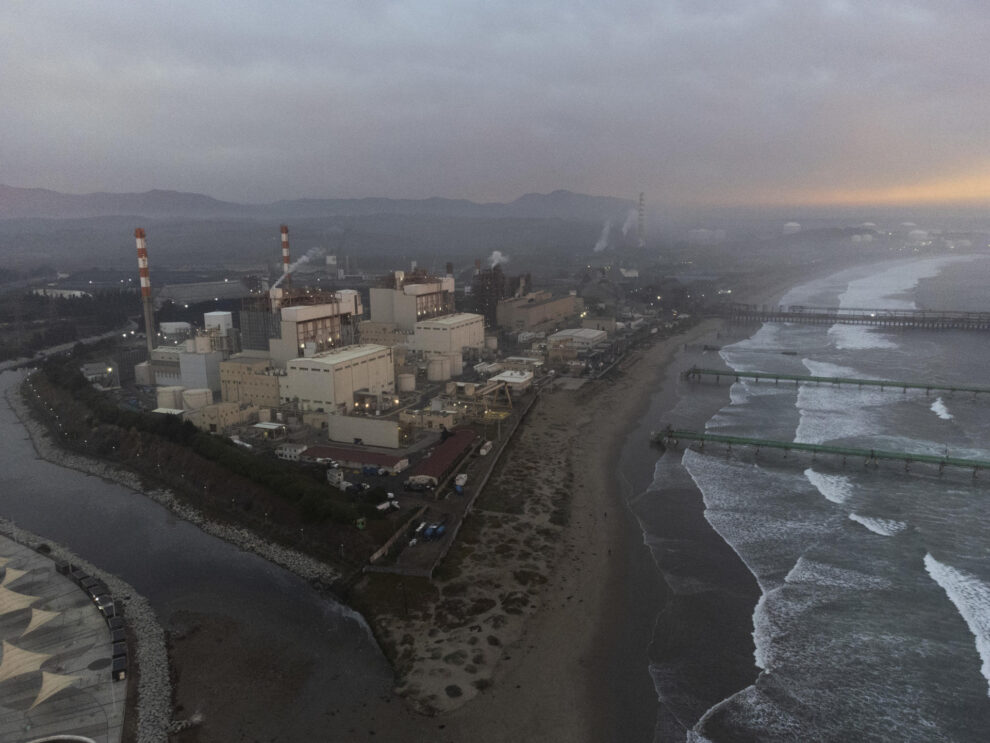Educators, activists, and victims of the industrial pollution that has made the Bay of Quintero-Puchuncavi the “Chilean Chernobyl” are asking authorities to place residents’ well-being ahead of economic imperatives in the wake of another incident of contamination that sickened dozens of people and forced the community into a lockdown.
Located on Chile’s central Pacific coast, not far from the metropolis of Valparaiso and the resort city of Viña del Mar, the bay is home to more than a dozen oil refineries, chemical plants, and coal-fired power plants.
On Tuesday, nearly 100 students needed medical attention for headaches and vomiting.
The symptoms appeared hours after the Valparaiso regional health department issued an alert for excessive concentration of non-metallic hydrocarbons in suspension in the air over Concon, Quintero, and Puchuncavi.
“It’s a sustained and systematic situation that occurs in many years, but especially last year. And curiously, the cases tend to be more intense and more frequent in July, at the start of winter. But this year it began in March, beginning the school year,” school principal Guillermo Trejo told EFE.
“It’s difficult to be able to determine if it corresponds to a higher index of polluting agents. Or to a greater awareness regarding the matter or the ability we have now to measure (pollution) with the equipment provided by the government,” he said.
“Being unwell,” Trejo added, “has become part of daily life and that makes it difficult to have hard and concrete facts about the level of impact we are having at the communal level.”
Because of the bay’s importance to Chile’s economy, “the steps that are being taken also have to do with the economic perspective. But for the first time we have seen a tendency toward the social perspective of what is happening to our children, to our families,” the principal said.
He acknowledged the difficulty of balancing environmental and health concerns with the need for economic development.
A few months ago, President Gabriel Boric reiterated his determination to do something about Quintero-Puchuncavi and Chile’s four other officially acknowledged “sacrifice zones.”
One of the government’s first moves in that direction is the decision by state-owned copper giant Codelco to shut down its highly polluting foundry in Ventanas, set to cease operations on May 31.
Jorge Cerda, vice president of a coalition of NGOs specializing in children’s issues, said that kids in the sacrifice zones are being denied the right to grow up free of pollution.
“In the future this can bring grave injury, even death. And nobody is saying that to the people,” he told EFE.
Instead, according to Cerda, authorities tell residents that “this will pass because you’re already accustomed to living here, in that pollution. But in the long term, they are going to die. And who will be responsible? The municipality, the state, or the companies? They always shut people up with money.”
Jose, a resident of Quintero, has two adolescent children who suffer from chronic respiratory illnesses. His daughter had to spend two months in intensive care at a hospital in Viña del Mar and doctors have detected serious damage to one of his son’s lungs.
“If it’s not treated in time he will end up using an oxygen tank,” Jose said of his son before pointing out that another disadvantage of living in a sacrifice zone is the lack of hospitals and physicians specialized in respiratory ailments.
Source: Laprensalatina
















